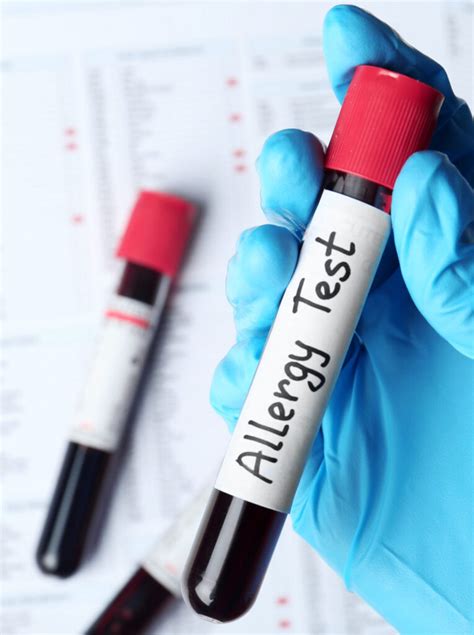Blood Test: Diagnose Allergies Accurately

For individuals suspecting they have an allergy, undergoing a blood test can be a pivotal step towards accurate diagnosis and subsequent management of their condition. Allergies occur when the body’s immune system overreacts to a harmless substance, such as pollen, dust mites, pet dander, or certain foods. This overreaction can lead to a variety of symptoms, ranging from mild discomfort to life-threatening reactions. The blood test, specifically designed to identify and quantify the levels of allergy-related antibodies in the blood, plays a crucial role in pinpointing the exact allergen causing the reaction.
Understanding Blood Tests for Allergies
Blood tests for allergies measure the amount of allergy-causing antibodies, primarily Immunoglobulin E (IgE), in the bloodstream. IgE antibodies are responsible for triggering the release of chemical mediators, which cause the symptoms of an allergic reaction. The most common blood tests include:
- RadioAllergoSorbent Test (RAST): Although older and less commonly used today due to the advent of more sensitive and specific tests, RAST was one of the first methods to quantify specific IgE antibodies.
- Enzyme-Linked Immunosorbent Assay (ELISA): This test is highly sensitive and can measure the levels of IgE antibodies against specific allergens. It’s widely used due to its precision and the ability to test for a wide range of allergens.
- ImmunoCAP: Considered one of the most advanced and precise methods, ImmunoCAP can measure the amount of IgE antibodies to specific allergens with high sensitivity and specificity.
The Process of a Blood Test for Allergies
The process of undergoing a blood test for allergies is straightforward and relatively quick. Here’s what individuals can expect:
- Preparation: There’s usually no need for special preparation, such as fasting. However, it’s essential to inform the healthcare provider about any medications being taken, as some may interfere with the test results.
- The Test: A healthcare professional will draw a small sample of blood from a vein, typically in the arm. The sample is then sent to a laboratory for analysis.
- Analysis: In the lab, the blood sample is tested for the presence and levels of IgE antibodies against specific allergens. This can include a panel of common allergens or can be targeted to suspected allergens based on the patient’s history.
- Results: The results of the blood test are usually available within a few days to a week. The healthcare provider will discuss the results with the patient, indicating which allergens they are sensitive to.
Interpreting Blood Test Results
Interpreting the results of a blood test for allergies requires a healthcare professional’s expertise. The results will typically show the level of IgE antibodies against each allergen tested. Higher levels usually indicate a greater sensitivity to the allergen. However, it’s crucial to correlate these results with the patient’s symptoms and medical history, as the presence of IgE antibodies does not always translate to clinical symptoms.
Management and Treatment Following Diagnosis
Once an allergy is diagnosed through a blood test, the primary approach to management is avoidance of the identified allergen. Depending on the severity of the allergy and the type of allergen, other treatments may include:
- Medications: Antihistamines, corticosteroids, and decongestants can help alleviate symptoms.
- Immunotherapy: Allergy shots or sublingual immunotherapy can desensitize the body to specific allergens over time, reducing the severity of reactions.
Conclusion
Blood tests are a valuable tool in the accurate diagnosis of allergies, offering a precise method to identify specific allergens. By understanding how these tests work and what their results mean, individuals can better manage their allergies and reduce the risk of severe reactions. It’s a step towards taking control of one’s health, making informed decisions about lifestyle adjustments, and undergoing appropriate treatment to mitigate the impact of allergies on daily life.
What is the most common type of antibody responsible for allergic reactions?
+The most common type of antibody responsible for allergic reactions is Immunoglobulin E (IgE). IgE antibodies are central to triggering the release of chemical mediators that cause the symptoms of an allergic reaction.
How long does it take to get the results of a blood test for allergies?
+The results of a blood test for allergies are usually available within a few days to a week after the sample is sent to the laboratory for analysis.
What is the primary method of managing an allergy after diagnosis through a blood test?
+The primary approach to managing an allergy after diagnosis is avoidance of the identified allergen. This can significantly reduce the risk of allergic reactions and is often combined with other treatments such as medications or immunotherapy, depending on the severity of the allergy and the patient’s response.


